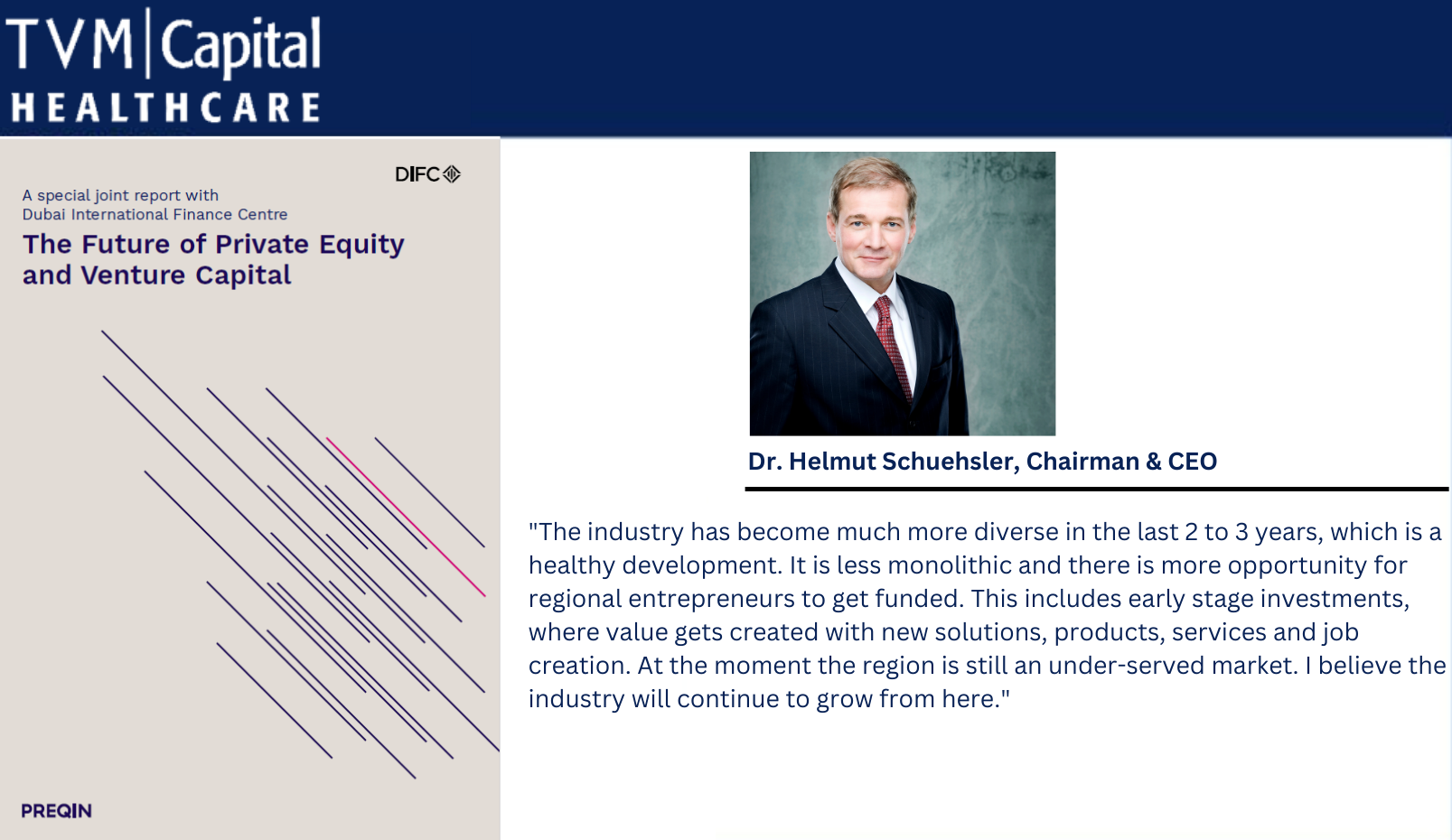Dr. Helmut Schuehsler, our Chairman and CEO, recently contributed with an interview to a report introduced by Preqin and DIFC, on ‘The Future of Venture Capital and Private Equity in the MENA Region’.
The full report can be downloaded here.
Here is the full interview:
What makes the Middle East an attractive investment market? Which particular sectors or segments are most attractive?
Mostly the fact that the markets are all growing. Oil provides a strong underpinning of liquidity and regional budgets, while the young demographic and a huge, growing influx of expatriates is an abundant source of talent. Plus there is hardly any competition on the private equity side. It is a nascent market. Regarding sectors, we are especially interested in healthcare. There are tremendous investment opportunities – like local medical product manufacturing – supported by a general focus by the region’s governments on improving their healthcare systems. I can’t really comment on other sectors beyond a general observation that many are in growth mode.
Do you apply value creation levers – for example leverage, arbitrage, M&A etc – differently to other regional markets?
As a firm our focus is very much on strategy, operations, execution and the quality of our management teams. This is the same everywhere. We are also straight equity investors and do not leverage our deals, so this is not a question for us. However, for investors using different Private equity models, they might find it difficult to raise cash flow based debt from the region’s commercial banks, who are very conservative in this respect.
What exit options exist today for Middle East-based portfolio companies? And how do you expect that to change/evolve over the next 5-10 years?
All of the investments/companies that we have realized have been sold through M&A transactions. In the next 10 years the regional stock exchanges, in particular, Saudi Arabia’s Tadawul, will provide fundraising and exit opportunities for fast growing and successful entrepreneurial companies, just like stock markets do elsewhere in the world.
Are you seeing more investment opportunities in the technology sector? Which segments are most attractive?
Tech is a big theme in the ME, especially in Dubai and Riyadh, where a great number of tech VCs have sprung up. Fintech is a big topic, so is AI for many applications, including consumer-oriented platforms. Health-tech is the part that is interesting to us.
Does ESG play a part in your investment decisions? Why?
ESG plays a big part of our deal making and a bigger part in our development approach. The role is less significant when we come to make the investment decision than it is post-investment. We always do ESG due diligence, but the deeper focus comes with our daily work with portfolio
companies as they grow and develop. Our core focus – being in healthcare – is on governance, compliance and quality, followed by social and environmental considerations. We have established a very elaborate system of policies and implementation manuals to guide that process.
Where do you see the PE & VC industry in the Middle East in 5 years’ time? Where do you think the opportunities for growth will be, and how are you positioning yourself in the region to capitalise on that?
The industry is poised to grow again, this time round led by the much smaller VC funds, and a multitude of approaches and strategies. It is more of a “grass roots” movement now. The industry has become much more diverse in the last 2 to 3 years, which is a healthy development. It is less monolithic and there is more opportunity for regional entrepreneurs to get funded. This includes early stage investments, where value gets created with new solutions, products, services and job creation. At the moment the region is still an under-served market. I believe the industry will continue to grow from here. For our part, we are doubling down on our commitment to the Middle East by raising another fund for healthcare private equity in the region as we speak.
